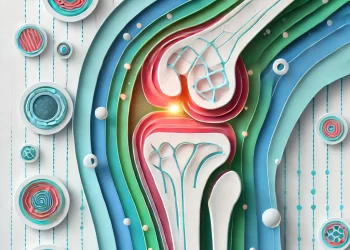Anti-aging research
A Summary of Telomeres as a Potential Anti-Aging Target
This summary highlights what we currently know of telomeres and the telomerase enzyme as potential anti-aging targets.
Read moreDetailsA Summary of Rapamycin as a Potential Anti-Aging Therapy
Rapamycin is used as an immunosuppressant, however, it has recently gained significant attention in the anti-aging research communities.
Read moreDetailsThe Potential of Reversing Age-related Biological Changes
A recent study explores the potential of reversing age-related biological changes by targeting the insulin/IGF-1 signaling pathway
Read moreDetailsThe Implication of Ferroptosis in Aging and Age-Related Diseases
A recently published research review explores ferroptosis and its significant implications for aging and age-related diseases.
Read moreDetailsNatural Astragalus-Based Supplement Lengthens Telomeres
Research suggests that an Astragalus-based supplement may help lengthen telomeres, and thereby reduce cellular age-related decline.
Read moreDetailsResearch Identifies Molecule for Rejuvenating Aged Skin
Recent research has identified HAPLN1 (hyaluronan and proteoglycan link protein 1) as a promising factor for rejuvenating aged skin.
Read moreDetailsThe Positive Effects of Cellular Senescence on Tissue Repair
Research shows that cellular senescence can play a positive role in tissue repair, particularly in the meniscus of the knee.
Read moreDetailsSynergistic Anti-Aging Effects of mTOR and SGLT-2 Inhibitors
A research review suggests that combining mTOR inhibitors and SGLT-2 inhibitors could provide benefits in slowing down the aging process.
Read moreDetailsTackling Aging with Combination Therapies
Research suggests that targeting multiple aspects of aging through combination therapies could be more effective than single interventions.
Read moreDetailsHow Amyloid Beta may Accelerate Aging
Research shows how Amyloid Beta (Aβ) may accelerate aging via protein insolubility, and identifies Urolithin A as a potential solution.
Read moreDetails










